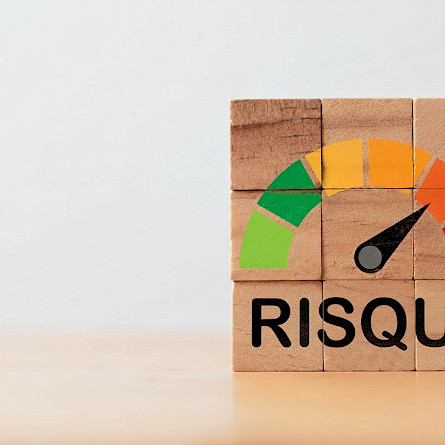If we combine these two characteristics of our investment philosophy—long-term focus and risk management—we arrive at the concept of “long-term risks.”
The events of recent months have made me realize that there are significant long-term risks in our economy, and I believe any long-term investor would make a major mistake by not taking them into account when managing their portfolio.
I am referring here to economic and social risks that could disrupt our economy over the coming decades. I identify two main ones.
The first is the threat posed by artificial intelligence. We all know this sector is evolving at a breakneck pace, and the ever-increasing capabilities of AI platforms are both impressive and concerning.
Currently, many investors are trying to capitalize on the enormous potential of AI by investing in a handful of companies tied directly or indirectly to this sector. I don’t believe I’m wrong in saying we are currently experiencing a bubble in the AI space. Yet, it is very difficult to predict which companies will be the sector leaders in a few years. Furthermore, the few stocks that seem to be ahead in the field are trading at such high valuation multiples that it seems unlikely they will deliver attractive returns in the coming years.
I recall the period of the tech bubble in the late 1990s: everyone believed (rightly so) that the Internet would revolutionize industries and create enormous value. However, who managed to invest in the companies that dominate the sector today, like Microsoft, Apple, Meta Platforms, or Google? In fact, except for Microsoft, these companies either didn’t exist in the late 1990s or were facing financial difficulties (like Apple).
The advances in AI are vast and rapid, and in my view, they could threaten the business models of many companies. I believe AI will create tremendous economic wealth, but it will also disrupt several industries. For most companies, AI represents both an extraordinary opportunity to improve efficiency and an existential threat.
From my perspective, if it is difficult to benefit from AI’s rise by investing directly in AI companies, it becomes crucial to avoid investing in those whose business models could be eliminated or marginalized by AI.
The second existential risk we face is climate change. Some political leaders may deny it and try to stop us from talking about it, but the scientific evidence is undeniable. Moreover, one would have to be blind not to feel the effects of global warming in recent years—especially the increasingly frequent wildfires across the globe and the inexorable rise in temperatures. Natural disasters and the population movements they will trigger are phenomena that have already begun and could accelerate in the years ahead.

The phenomenon of climate change could have a significant long-term impact on many industries. The first that come to mind are property insurance, agriculture, and food production, but there are others as well.
For me, long-term investing is not only about investing in promising sectors; it also requires avoiding the most significant risks that threaten us in the years to come.
Philippe Le Blanc, CFA, MBA
Chief Investment Officer at COTE 100
_______






